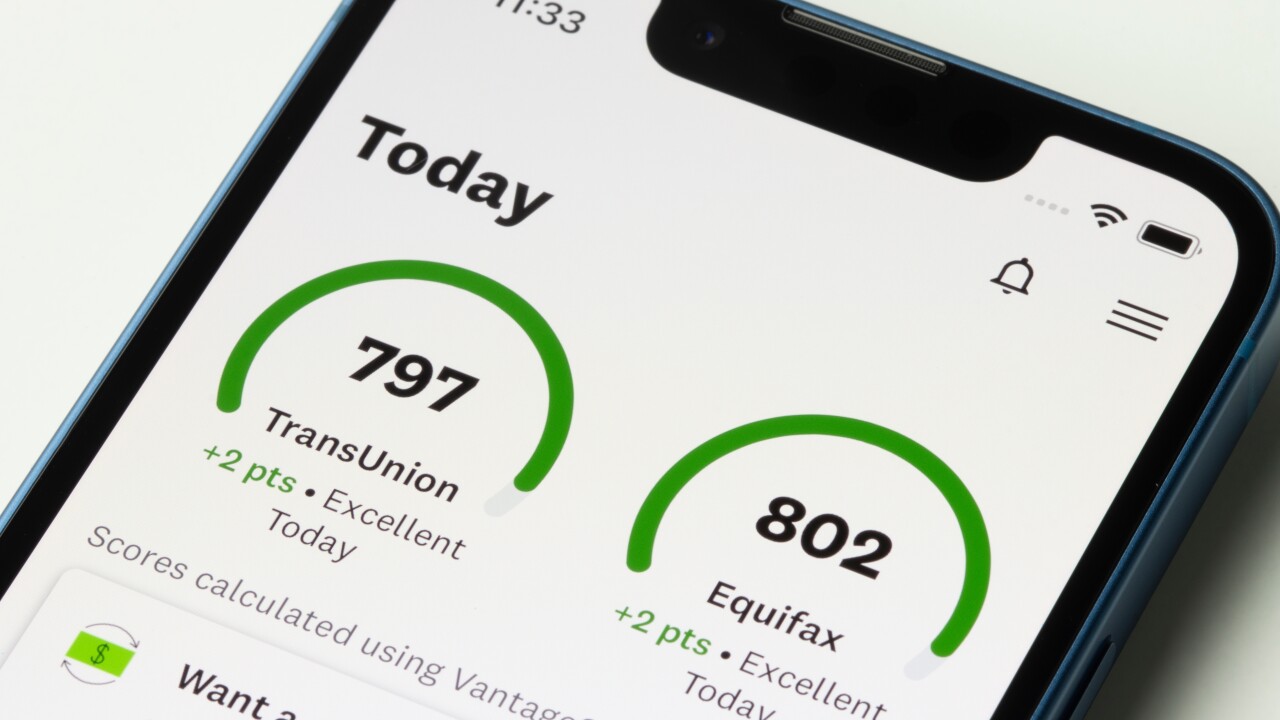
Black Knight Financial Services is seeking a buyer for PCLender, one of its three loan origination systems, and the founder of the business is said to be among the potential bidders.
Lender Processing Services,
A spokeswoman for Black Knight would not discuss the matter.
The reasons for putting PCLender up for sale less than three years after acquiring it are unclear. But the breadth of technology updates required to keep pace with the myriad recent and upcoming regulatory changes may be a factor.
"It's a lot of work to maintain different platforms, even if you're a big leader like Black Knight in terms of various technologies in the mortgage space," says Jonathan Corr, president and chief operating officer of the LOS developer Ellie Mae. "If you’ve got multiple systems, you’ve got to keep them up for ability-to-repay and Qualified Mortgage. The
A source outside Black Knight says there are at least three bidders in contention, including Lionel Urban, who founded PCLender in 1997 and was its president. Urban is now the CEO and co-founder of Navigator Lending Solutions (also known as NavPros), an origination fulfillment outsourcing provider for correspondent lenders based in Clearwater, Fla.
He is said to be interested in using PCLender to complement NavPros' suite of technology and services, as well as to market its outsourcing business to PCLender clients. Urban declined to comment.
Cy Brinn, PCLender's former chief operating officer, has also been mentioned as a potential bidder for PCLender. Brinn, currently the COO of mortgage document management and delivery technology provider VirPack, also declined comment.
Urban and Brinn stayed with PCLender after the LPS acquisition, but both left the company in 2012.
In both cases, LPS's strategy was more than just selling LOS technology; it wanted to use the platforms to get a foot in the door to sell its ancillary technology and services, including appraisal, title, closing, analytical services, business intelligence and default services.
"The regulatory pressure and the ability to service the customer in the same way or better as the larger institutions is going to push the demand for our technology down market," Dan Scheuble said in an
"PCLender was for exactly that purpose We believe that as we get our technology into those environments, that can be a platform to sell other products and services that we have to those institutions," Scheuble added.
Black Knight may be looking to concentrate its technology stack by scaling up the LendingSpace platform to address more midsize lenders, and keeping Empower in its traditional role as a system for large lenders. That leaves PCLender stuck in the middle, apparently squeezed out of Black Knight's future plans.
It wouldn't be the first time a mortgage tech vendor has been acquired and then resold. Among the most oft-cited examples was one of the mortgage industry's very first LOS companies, Contour Software. Founder Scott Cooley sold the company to First American in 1998. He stayed with the business and oversaw its sale again to
Fiserv acquired LOS vendor
And of course, this isn't the first time Fidelity National Financial has owned the mortgage servicing automation, analytics and lending technology that
Technology businesses often get reacquired by their previous owners because they have a deeper understanding of the business than outsiders do, Corr says.
"When something is maybe not doing as well as a corporate would expect, other folks are maybe shy about taking on the risk, but someone who actually knew a business may feel more comfortable with that," he says.
It's unclear whether Black Knight could sell PCLender for a profit. At the time of the acquisition, PCLender had about 100 lender customers. The current customer count is unknown, but two sources say the number of lenders using the system has gone down.
As a standalone company, LPS had a market capitalization of more than $2 billion, while new parent company FNF has a market cap of approximately $7.37 billion. To put that in perspective, PCLender's original $9.8 million price tag is equivalent to roughly one-tenth of one-percent (0.13%) of Fidelity's total value, meaning even if PCLender is sold for a loss, the financial impact on the company would be negligible.
Keeping software modernized is a
"It's kind of status quo. It's getting the job done for us, but I don't know if there's been a ton of new stuff coming out. It's working exactly as we signed up," says one lender executive, who asked not to be named.
An executive from another lender that uses the LOS, who asked not to be named due to the sensitivity of the topic, heard rumors of the sale and asked Black Knight officials about it. The executive was told Black Knight could not discuss it because of its status as a publicly-traded company.
"There are always concerns," the executive says. "You don’t know who the next buyer is going to be and what they're going to do with software that requires a significant investment to keep it going."
A technology executive familiar with PCLender speculates that it would cost $3 million to $5 million in development costs to overhaul the system. Still, PCLender could be attractive to a company that doesn't currently have those capabilities, as well as existing LOS vendors that want to pick up a rival's customers.
"If someone were to buy PCLender to maintain the system, it wouldn't double their costs," says Corr. "For any player where it would be a consolidation play, you don't want to maintain it, so you've got to figure out how to get the folks over, and it really becomes a question of what's the effort to get them over?"





